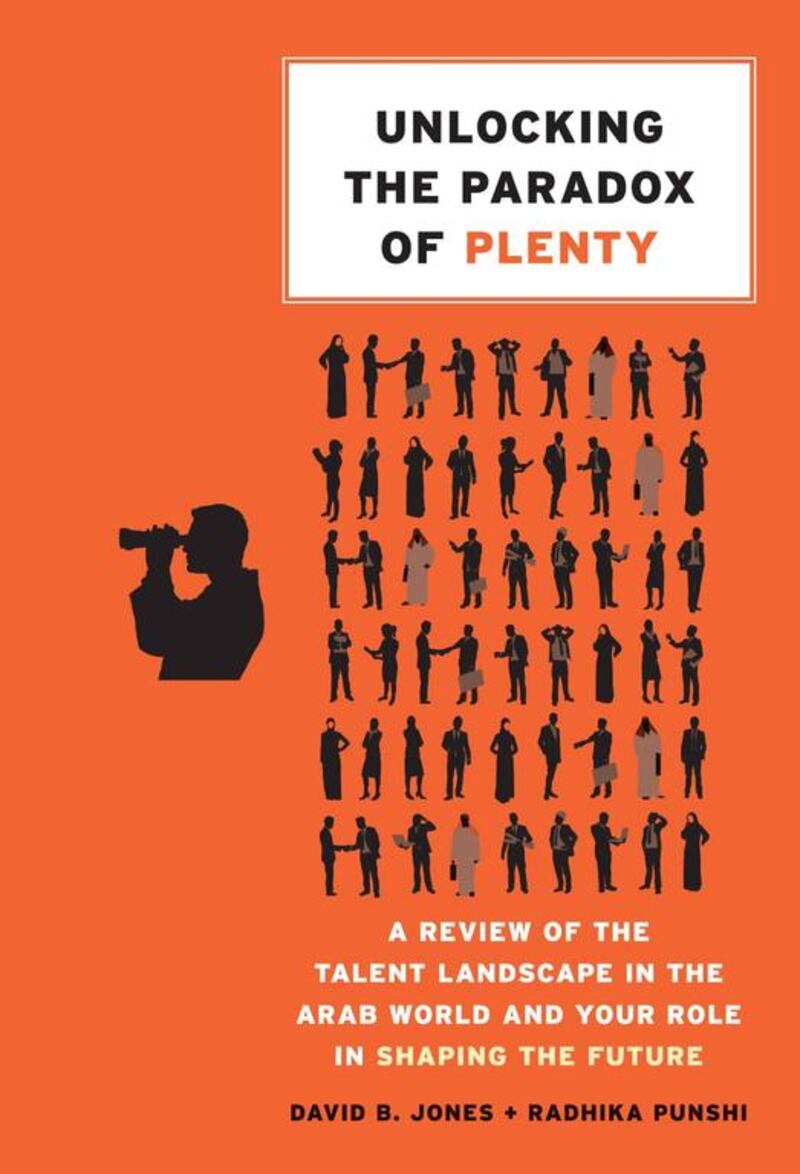The Arabian Gulf is fecund; policymakers must decide how best to make use of the region’s fertilities.
That's the claim made by the new book Unlocking the Paradox of Plenty by David Jones and Radhika Punshi.
Rich in oil, youth and infrastructure, GCC states nonetheless face a range of labour market challenges, argue Jones and Punshi, managing director and consulting director of The Talent Enterprise, a human resources think tank.
Gulf employees report some of the lowest levels of engagement in the world; youth unemployment, although its exact level is unknown, remains high; increasing female participation in the workforce remains a struggle; skills gaps in rapidly growing industries are significant; and Emiratisation is in full swing.
But these challenges are opportunities, say Jones and Punshi. A huge number of young people and educated women will be able to contribute to economies that are growing at a rapid clip. Booming economies mean rapidly expanding job opportunities, while the labour market bulge means the Gulf can supply an army of well-educated Emirati workers.
The big issue is connecting these new workers with the kinds of work available. Not enough graduates are equipped with the skills that match the industries in which vacancies are being created; vocational training, careers guidance and internships are vital for addressing this.
Too few employers offer flexible working arrangements to encourage women into full-time work; flexible working arrangements and generous maternity leave programmes can attract highly qualified workers who would otherwise exit the labour market, hurting both the firm and the economy.
Private sector firms also need to do more to engage Emiratis, and provide them with training and skills. Employers should stop assuming that expats and Emiratis are engaged in a zero-sum battle for resources and attention – instead, they should invest in mentoring and training, and emphasise the importance of diversity.
Jones and Punshi give us a detailed diagnosis of the issues facing the Gulf’s labour market. Their solutions are sensible: they should be listened to.
Q&A: Balance for working women
Is there really an issue of female unemployment in the Arabian Gulf?
Despite having higher levels of qualifications on average, female graduates face much higher rates of unemployment. In the UAE, for instance, only 28 per cent of the labour force is female. This means there’s plenty of economic growth to be had by encouraging more women into work. Women tend to improve the cultures of organisations in which they work, and more women in work means lower unemployment.
What are the barriers?
There are many, from perceptions around gender-specific job roles, family roles and pay, to contractual terms that make it harder for women to get back into work following pregnancy, or caring for children. For related reasons, women are more likely to enter public sector jobs, which tend to offer a better work-life balance.
What can be done?
Employers should be proactive about promoting women at all organisational levels. They should adopt more flexible working practices, including part-time work, freelancing, project work and working from home, as well as schemes to reintroduce women to the workplace after extended absences. Maternity leave and childcare provision are also vital, to ensure that women with children don’t feel forced to choose between a career and a family. Jones and Punshi also believe that appointing sponsors, and encouraging women to identify role models within the organisation, can play an important role in encouraging women to progress.
abouyamourn@thenational.ae





